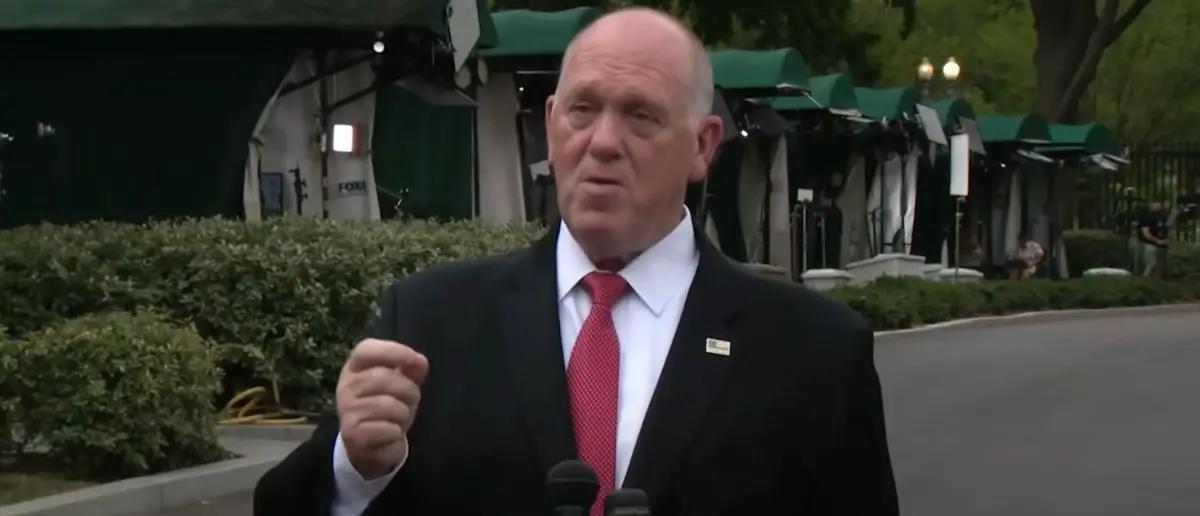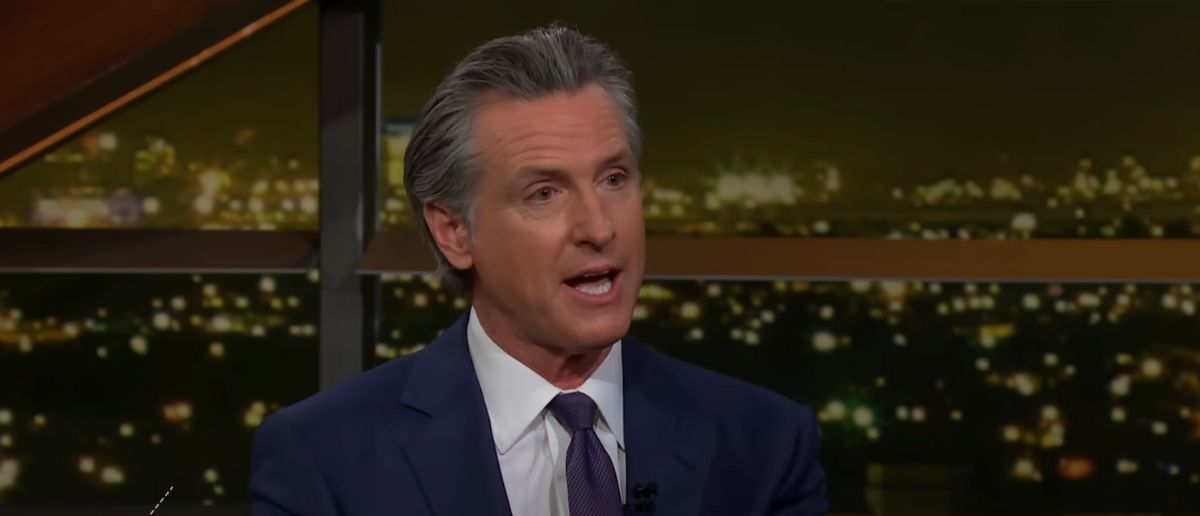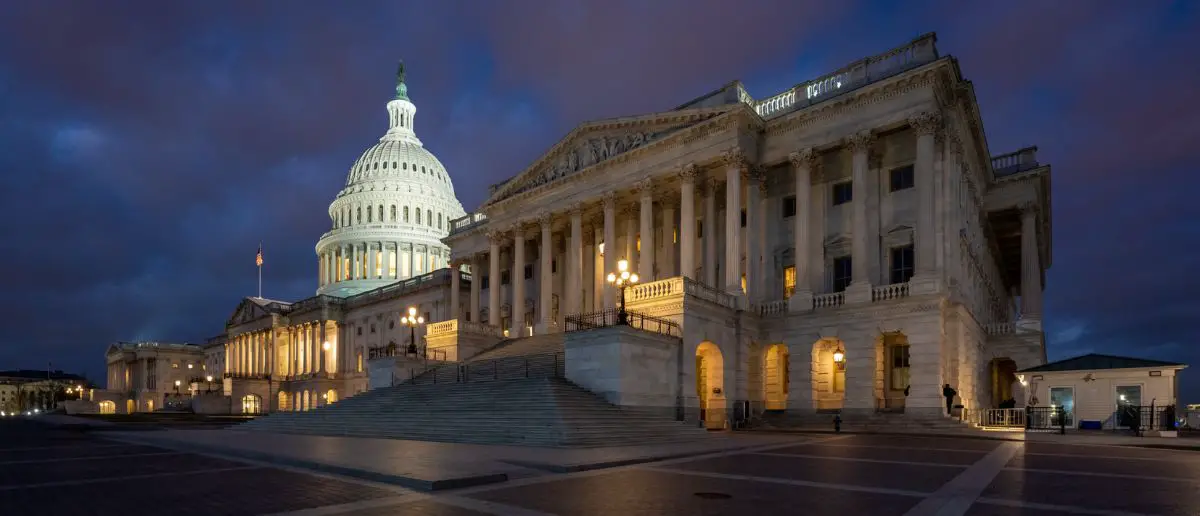
Democrat radicalism has gone too far. The Trump admin won’t put up with it.
That’s why Trump’s border czar has just declared war on New York City.
Trump Administration’s Efforts to Uphold Law and Order in Sanctuary Cities
Tom Homan, the border czar, dismissed pledges from Zohran Mamdani, a Democratic mayoral candidate in New York City, to oppose operations by U.S. Immigration and Customs Enforcement (ICE). Speaking on Monday, Homan addressed Mamdani’s backing of the city’s sanctuary policies, which limit cooperation with federal immigration authorities.
On Friday, President Donald Trump signed a reconciliation bill into law, allocating significant funding to ICE. The legislation enables the agency to hire 10,000 additional agents and expand detention facilities to strengthen immigration enforcement. When questioned about Mamdani’s stance, Homan emphasized the administration’s focus on sanctuary cities. “President Trump made it clear three weeks ago—we’re doubling and tripling our efforts in sanctuary cities, not because they’re Democratic strongholds, but because that’s where the challenges are,” Homan said. “These cities release individuals who pose public safety and national security risks daily by ignoring our detainers.”
Homan contrasted the situation with states like Florida, where local sheriffs fully cooperate with ICE. “In places like Florida, we don’t face these issues because sheriffs work with us,” he noted. “We’re deploying our resources to sanctuary cities where the problems are most acute, and we’ll flood those areas with agents to address the situation.”
President Trump has prioritized tackling illegal immigration in his second term, building on his 2024 campaign promises. Since taking office on January 20, he has issued executive orders targeting border security, including designating Mexican drug cartels, the Venezuelan gang Tren de Aragua, and the El Salvadoran gang MS-13 as foreign terrorist organizations. On March 15, he invoked the Alien Enemies Act of 1798 to expedite deportations of gang members, reinforcing his commitment to immigration enforcement.
Opposition to ICE operations has emerged in several cities. In Milwaukee, a judge reportedly assisted an undocumented immigrant in temporarily evading ICE agents. In Nashville, Democratic Mayor Freddie O’Connell disclosed the identities of ICE agents involved in local immigration enforcement. In New York City, ICE arrested Democratic mayoral candidate Brad Lander on June 18 for allegedly obstructing an operation in a Manhattan court. Similarly, in May, Democratic Rep. LaMonica McIver of New Jersey faced charges for assaulting an ICE agent during an incident at a Newark ICE facility.
The Trump administration has intensified its campaign to enforce immigration laws, particularly targeting so-called sanctuary cities that limit cooperation with federal authorities. A key component of this strategy is a recent lawsuit filed by the Department of Justice (DOJ) against Los Angeles, its mayor, Karen Bass, and the city council on June 30. The lawsuit argues that Los Angeles’ sanctuary policies, which prohibit local police from assisting federal immigration enforcement except in cases of serious crimes, violate federal law and obstruct immigration enforcement efforts. Attorney General Pam Bondi stated that these policies contribute to “lawlessness, rioting, looting, and vandalism,” necessitating the deployment of the National Guard and Marines to quell unrest in the city.
This legal action follows a pattern of lawsuits against other sanctuary jurisdictions, including Chicago, New York, New Jersey, and Colorado, as part of the administration’s crackdown on policies that shield undocumented immigrants from deportation. The DOJ contends that Los Angeles’ Ordinance Number 188441, which bars city resources from being used for immigration enforcement, violates the Constitution’s Supremacy Clause by impeding federal authority. The lawsuit highlights the administration’s argument that sanctuary policies create unsafe environments by releasing individuals who pose public safety risks.
President Trump’s immigration agenda was a cornerstone of his 2024 campaign, during which he promised to deport millions of undocumented immigrants. Upon taking office, he signed Executive Order 14159, which threatens to withhold federal funding from sanctuary jurisdictions and expands immigration enforcement operations. This order has heightened tensions with cities like Los Angeles, San Francisco, and New York, which defend their policies as protecting community trust and human dignity. However, the administration views these policies as direct challenges to federal authority, with Bondi asserting that they prioritize “illegal aliens over American citizens.”
In addition to legal challenges, the administration has escalated enforcement through large-scale ICE operations. In Los Angeles, recent immigration raids sparked protests and violent clashes, prompting Trump to deploy 2,000 National Guard members to restore order, a move that bypassed California Governor Gavin Newsom’s authority. This decision led to a countersuit from California, accusing the administration of unlawfully federalizing the state’s National Guard.
Sanctuary cities argue that their policies foster safer communities by encouraging undocumented immigrants to cooperate with local law enforcement without fear of deportation. Los Angeles City Councilmember Hugo Soto-Martinez, a co-author of the city’s sanctuary ordinance, vowed to protect residents, stating, “We refuse to stand by and let Donald Trump deport our neighbors, family, friends, and coworkers.” However, the administration counters that these policies shield dangerous criminals, citing incidents of violence during protests as evidence of the chaos caused by non-cooperation with ICE.
The administration’s efforts extend beyond lawsuits and raids. In April, Trump signed executive orders directing Attorney General Bondi and Homeland Security Secretary Kristi Noem to pursue legal remedies against sanctuary cities.
The Small Business Administration (SBA) has also taken steps to align with this agenda, announcing the relocation of its Los Angeles regional office in June due to the city’s sanctuary policies. The move followed the passage of H.R. 2931, the Save SBA from Sanctuary Cities Act, on June 5, 2025, which aims to protect American businesses by ensuring federal resources are not used to support jurisdictions that defy immigration laws. Similar relocations have occurred in other sanctuary cities like New York, Chicago, and Seattle.
Despite these efforts, sanctuary cities face significant legal and political hurdles. A federal judge in San Francisco, William Orrick, ruled in May that Trump’s executive orders cannot override existing court injunctions barring the administration from withholding all federal funding from sanctuary jurisdictions. This ruling, stemming from lawsuits by cities like San Francisco and Seattle, highlights the ongoing legal resistance to Trump’s policies. However, the administration continues to explore alternative funding cuts tied to specific sanctuary policies, testing the boundaries of judicial restrictions.
Public sentiment, as reflected in posts on X, shows strong support among some for Trump’s crackdown on sanctuary cities. Users have praised the administration’s plans to withhold federal resources and bypass local authorities that resist deportation efforts. For instance, a post from July 4, highlighted ICE’s new policy of immediately deporting undocumented immigrants rather than transferring them to California authorities, a move aimed at countering sanctuary policies. These sentiments align with the administration’s narrative that sanctuary cities protect criminals at the expense of public safety.
Critics, including Mayor Bass and other local leaders, argue that the administration’s actions unfairly target immigrant communities and exacerbate tensions. Bass described the Los Angeles lawsuit as part of an “all-out assault” on the city, vowing to defend its sanctuary policies. She disputed claims of widespread riots.
Stay tuned to the DC Daily Journal.





